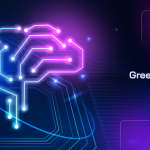
Recent experiments suggest that artificial intelligence (AI) might be better at diagnosing patient conditions than human doctors. This revelation comes from experiments conducted at Stanford University, Beth Israel Medical Center in Boston, and the University of Virginia, where generative AI tools were tested alongside physicians.
The results showed that AI alone achieved an accuracy rate of over 90%, outperforming doctors in diagnostic tasks—sometimes by a significant margin.
AI Surpasses Physicians in Diagnostic Trials
The trials were designed to compare how well AI tools, like the GPT-4-powered ChatGPT, could diagnose complex cases compared to human physicians, both with and without AI assistance. Researchers expected that doctors, aided by the AI, would outperform AI working solo. However, they were in for a surprise.
Dr. Adam Rodman, one of the study’s authors, recalled, “I reran the experiment, and my jaw dropped. AI alone was almost 20% better, like 90% accurate.”
An interesting takeaway from this study reveals that the combination of human expertise and AI didn’t improve the results. Physicians often relied on their expertise, sometimes ignoring suggestions from the AI, even when those suggestions were more accurate. ChatGPT, on its own, outperformed both physician groups, implying the potential of AI to enhance diagnostic accuracy.
Dr. Jonathan Chen from Stanford University explained that this outcome contradicted the “fundamental theorem of informatics,” which suggests that a collaboration between humans and computers should outperform working alone. “Deliberate training, integration, and evaluation are necessary to actually realize that potential,” he pointed out.
“Our study shows that AI alone can be an effective and powerful tool for diagnosis,” noted Dr. Andrew Parsons from the University of Virginia. However, he also echoed that more training would be required to fully utilize these emerging tools in clinical practice.
AI’s Future Role in Healthcare
AI tools like ChatGPT could soon play a central role in assisting physicians and helping to enhance accuracy and efficiency. According to recent forecasts by Statista, AI in the healthcare market is expected to reach around $188 billion by 2030. The growing confidence in AI’s ability to transform healthcare unveils as more than 70% of healthcare leaders in the U.S. pursue or implement generative AI capabilities.
According to Veronica Walk, a vice president analyst at Gartner Research, there is substantial excitement about how generative AI could transform clinical decision-making. “Vendors are incorporating it into their solutions, and clinicians are already using it in practice—whether provided or sanctioned by their organizations or not,” she said.
However, experts warn that the amount of studies in this area is still not enough to understand how best to integrate AI into the clinical environment. There are still challenges related to understanding its downstream effects and effectively training healthcare professionals to work with these tools.
For now, it seems that AI is best positioned to augment the work of doctors rather than replace them. The promise of AI-driven diagnostic tools lies in their ability to support healthcare providers in making more informed decisions, ultimately leading to better patient outcomes.
As Dr. Rodman said, “Good or bad, ready or not, Pandora’s box has already been opened, and we need to figure out how to effectively use these tools.”



![AI Trends for [current_date format='Y']: What's Shaping the Future of AI 4 AI trends](https://www.greenbot.com/wp-content/uploads/2025/04/AI-trends-150x150.png)
















